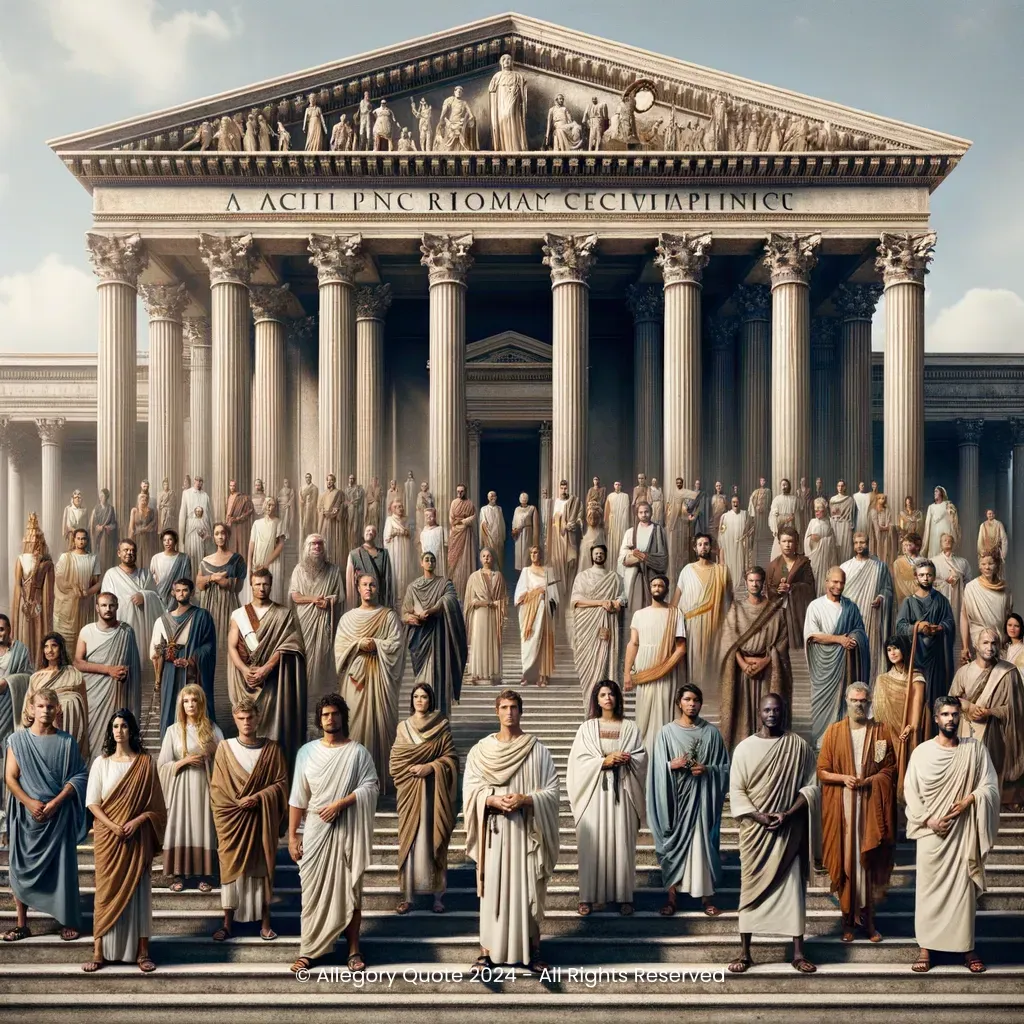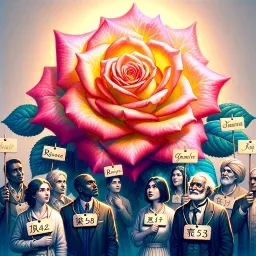Gens togata

0
0
0
0
- Meaning
- The meaning of "gens togata" centers on the identity and status of Roman citizens. The toga was not just a piece of clothing but a symbol of Roman citizenship, prestige, and social order. Wearing the toga was an exclusive right of male Roman citizens and was often associated with public life, civic duty, and social hierarchy. The phrase underscores the idea of a people distinguished by their customs and societal structures, portraying a collective image of Roman discipline and civilization.
- Allegory
- In this image, the group of Roman citizens wearing togas represents the collective identity of the Roman people. The steps of the ancient Roman basilica signify the public and civic life central to Roman culture. The clear sky suggests an era of clarity and openness in Roman society. The diversity among the citizens, from senators to common people, shows the unity and shared identity despite social differences. Symbols like laurels represent victory and honor; scrolls denote knowledge and law; the architecture emphasizes the grandeur and orderliness of Roman civilization. This visual composition celebrates the heritage and unity of Roman society, reflecting the values encapsulated by "gens togata."
- Applicability
- The concept of "gens togata" can be applied to modern life by understanding the cultural symbols that define and identify a group or society. It urges people to recognize and respect the symbols that distinguish different communities and their traditions. In personal life, it can mean embracing one's heritage, participating in societal customs, and acknowledging the distinct identity markers that contribute to a united, cohesive society.
- Impact
- The impact of "gens togata" on culture and history is significant, as it encapsulates the essence of Roman civilization. The toga became an enduring symbol of Roman life, influencing contemporary portrayals of ancient Rome in literature, art, and popular culture. The phrase invokes discussions on citizenship, social order, and the distinctive characteristics that defined and unified the Roman people.
- Historical Context
- The historical context of "gens togata" falls within the era of the Roman Republic and the Roman Empire (circa 509 BCE to 476 CE). The toga was a staple garment among Roman citizens, reflecting the customs and legal status that characterized Roman public life. The phrase emphasizes the collective identity of Roman citizens during a period when Rome wielded significant cultural, political, and social influence.
- Criticisms
- There have been limited criticisms or controversies specifically about the phrase "gens togata." However, modern perspectives might critique the exclusive nature of Roman citizenship and societal hierarchy, reflecting on issues of gender inequality and class distinctions inherent in ancient Rome's social structure. Additionally, the toga symbolized a set of values that might be seen as antiquated or overly rigid by contemporary standards.
- Variations
- Variations of this phrase can be found in other expressions that describe the Roman people or speak to their distinctive clothing and customs. For example, "togati" is another Latin term used to refer to toga-wearing individuals, particularly Roman citizens. Interpretations might differ slightly based on context but generally share the theme of Roman identity and culture.
-

Gaudeamus igitur.
-

Hannibal ante portas.
-

O tempora, o mores!.
-

Ubi bene, ibi patria.
-

Nulla dies sine linea.
-

Levis est labor placidus.
-

What's in a name? That which we call a rose by any other name would smell as sweet.
-

We know what we are, but not what we may be.
-

Pugna pro patria.
No Comments